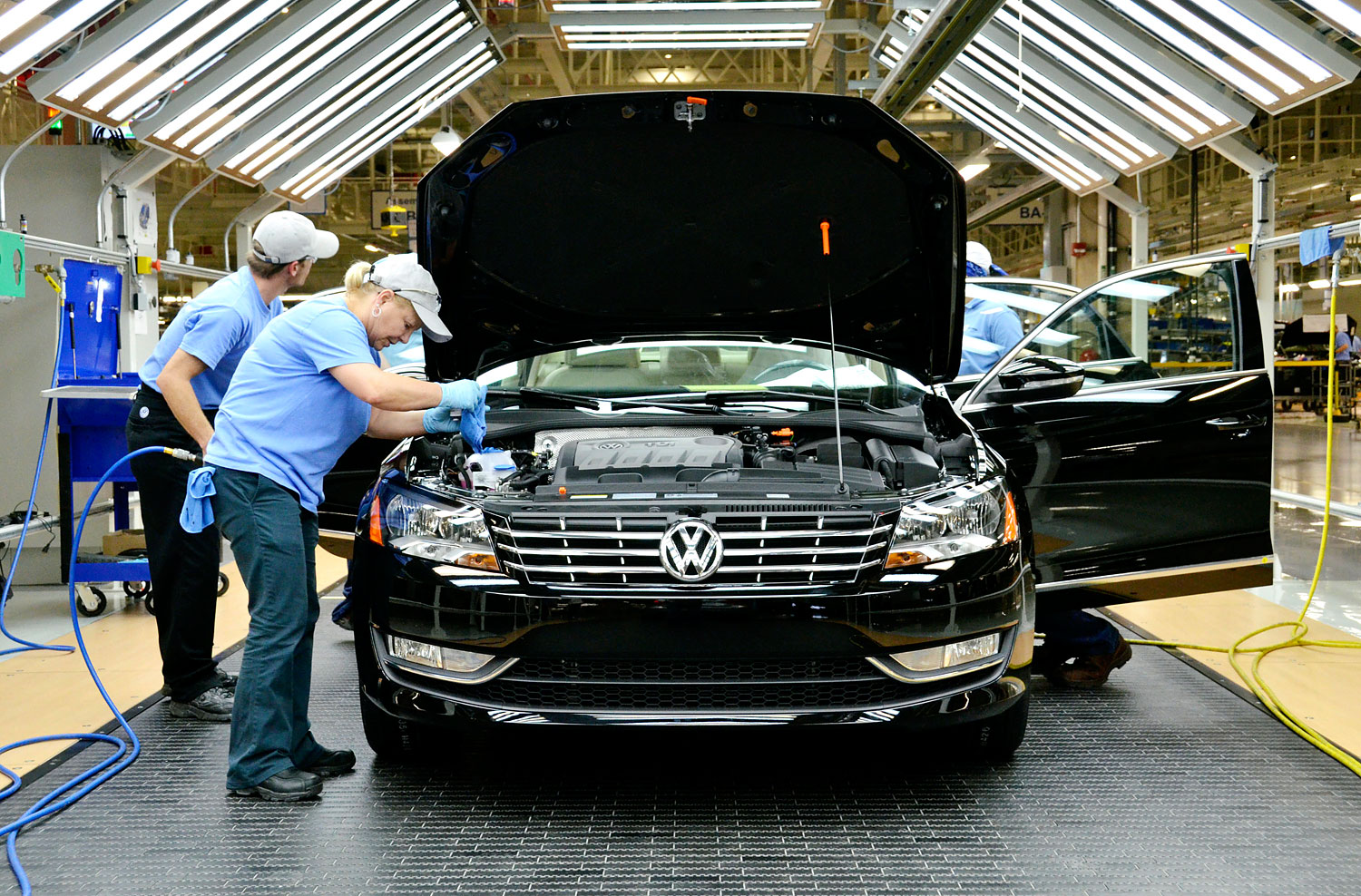
Union battles usually involve workers duking it out with management. But in the highest-profile labor-relations fight in recent years, the workers and management were essentially on the same side, and the battle was between the United Automobile Workers (UAW), one of the most storied unions in U.S. history, and local Republican lawmakers and conservative political supporters like Grover Norquist and the Koch brothers. They squared off over whether the UAW would be allowed to organize a VW plant in Chattanooga, Tenn., which would facilitate something the company desperately wanted–a “works council” allowing labor a say in all plant activities.
It’s a complicated tale that says a lot about how business works in the U.S. compared with places like Germany. There, big companies are not only unionized but also have works councils in which management and workers collaborate on things like schedules, furloughs, pay, expansion plans or which product lines a factory might make. The idea is for management and labor to work together on issues before they become problems. It’s a system that has made Germany into the export powerhouse that it is, and one that VW, the most profitable automaker in the world, has been desperate to implement in the U.S.
The problem is that under American labor law, you can’t have a works council without a union. And in Tennessee, Republican legislators as well as conservatives like Norquist and the Koch brothers have been waging a campaign to keep unions out. Over the past few months, Chattanooga has been blanketed with billboards paid for by groups like Norquist’s Center for Worker Freedom bearing slogans like Detroit: Brought to you by the UAW. On the second day of the National Labor Relations Board (NLRB) vote, U.S. Senator Bob Corker (a former Chattanooga mayor) raced into the city, claiming he’d received a tip from VW that if the union were rejected, a new SUV would be scheduled for production there. (The factory, which opened in 2011, currently makes Passats.) VW quickly announced that this was false, but no matter–right-wing talk radio grabbed Corker’s comments and fanned the antiunion flames. The vote was 712-626 against the UAW.
It was a bitter defeat, and yet the fact that the union got 47% of the vote made it by far the most successful organizing effort ever at a foreign automaker in the South, according to labor professor Harley Shaiken of the University of California, Berkeley. It also makes Chattanooga one of the rare VW plants worldwide that don’t have a works council. (Others can be found in China.) The vote hasn’t sat well with the company, which still hopes to find a way to have a council. (The UAW can’t organize activity or hold another vote for a year, though a different union can try to, which raises interesting possibilities.) Bernd Osterloh, head of VW’s main works council in Germany, issued an ominous statement about the future of the company’s expansion in the U.S.: “I can imagine fairly well that another VW factory in the United States, provided that one more should still be set up there, does not necessarily have to be assigned to the South again.”
I’ve heard from VW workers who felt frightened by conservative talk about job losses that might result from unionization, which may be a reason some voted no. I’ve heard from others within the plant who believe that VW was already offering such a good deal–starting pay is $15, a lot more than it is for many other blue collar jobs in the community–that workers simply decided not to risk rocking the boat. But the sad fact is that what started as an innovative new idea to improve labor relations and productivity turned into an ugly political mess. We need a new way to think about labor relations. Americans are often frightened by labor power because they believe that higher wages mean lost jobs. But this is a point hotly debated by economists, many of whom believe that the wealth-enhancing effect of higher pay would lead to higher consumer spending and thus higher economic growth. Certainly it’s true that as unions have declined in this country–membership among workers is only 11% today, down from a peak of 35% in the mid-1950s–wages have flattened for all Americans. Plenty of experts believe sluggish U.S. wage growth is a real problem in a country in which consumer spending is 70% of the total economic pie.
The UAW is considering appealing the result; U.S. labor laws would have barred any company in an NLRB vote from threatening workers’ jobs, but politicians were under no such stricture, which seems unfair. Workers are voicing their opinions in other ways. In the window of one truck in the VW parking lot, a pro-UAW sign has been replaced by another that reads, Bob Corker sucks.
More Must-Reads From TIME
- The 100 Most Influential People of 2024
- The Revolution of Yulia Navalnaya
- 6 Compliments That Land Every Time
- What's the Deal With the Bitcoin Halving?
- If You're Dating Right Now , You're Brave: Column
- The AI That Could Heal a Divided Internet
- Fallout Is a Brilliant Model for the Future of Video Game Adaptations
- Want Weekly Recs on What to Watch, Read, and More? Sign Up for Worth Your Time
Contact us at letters@time.com